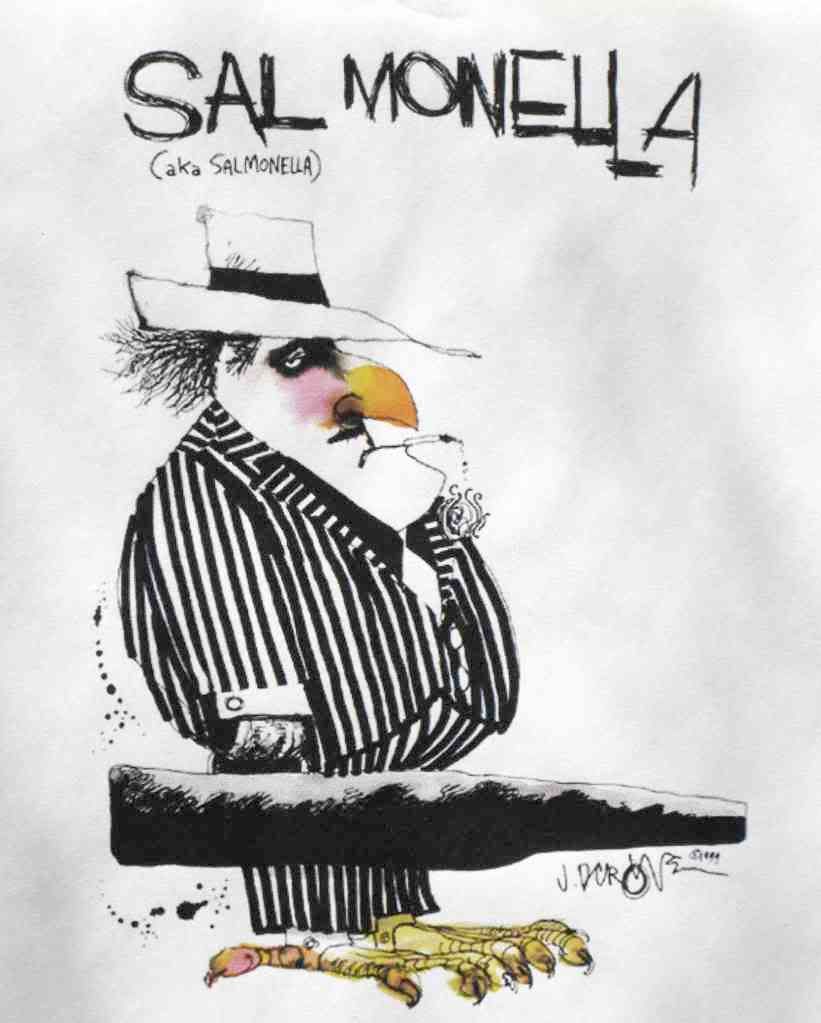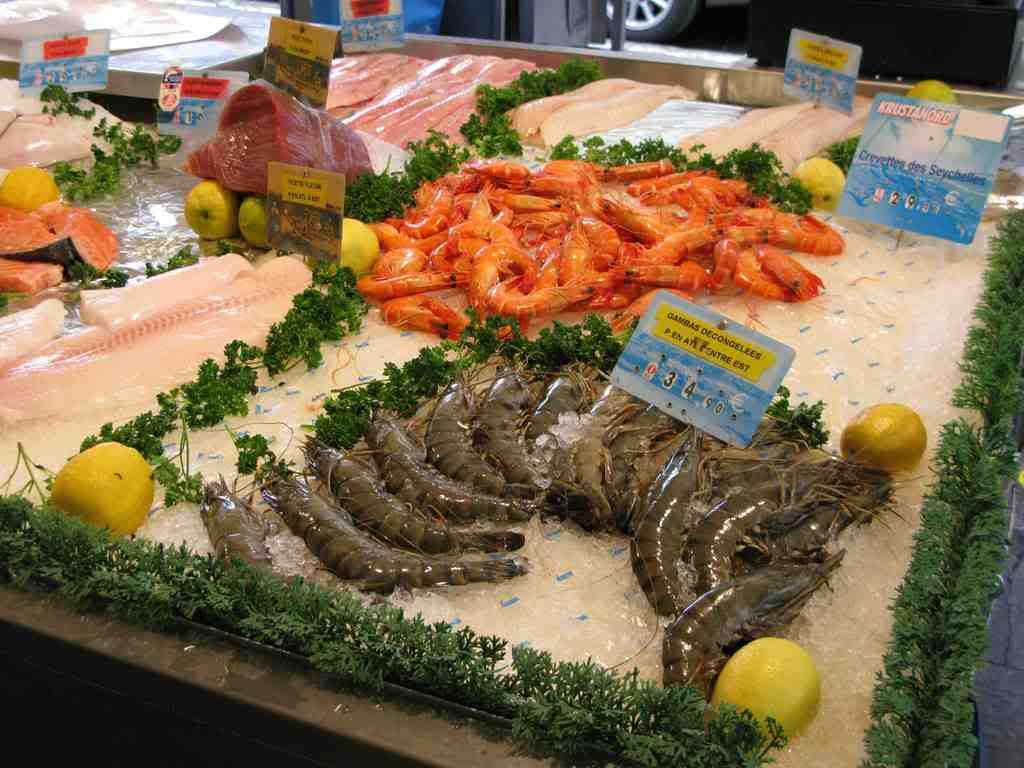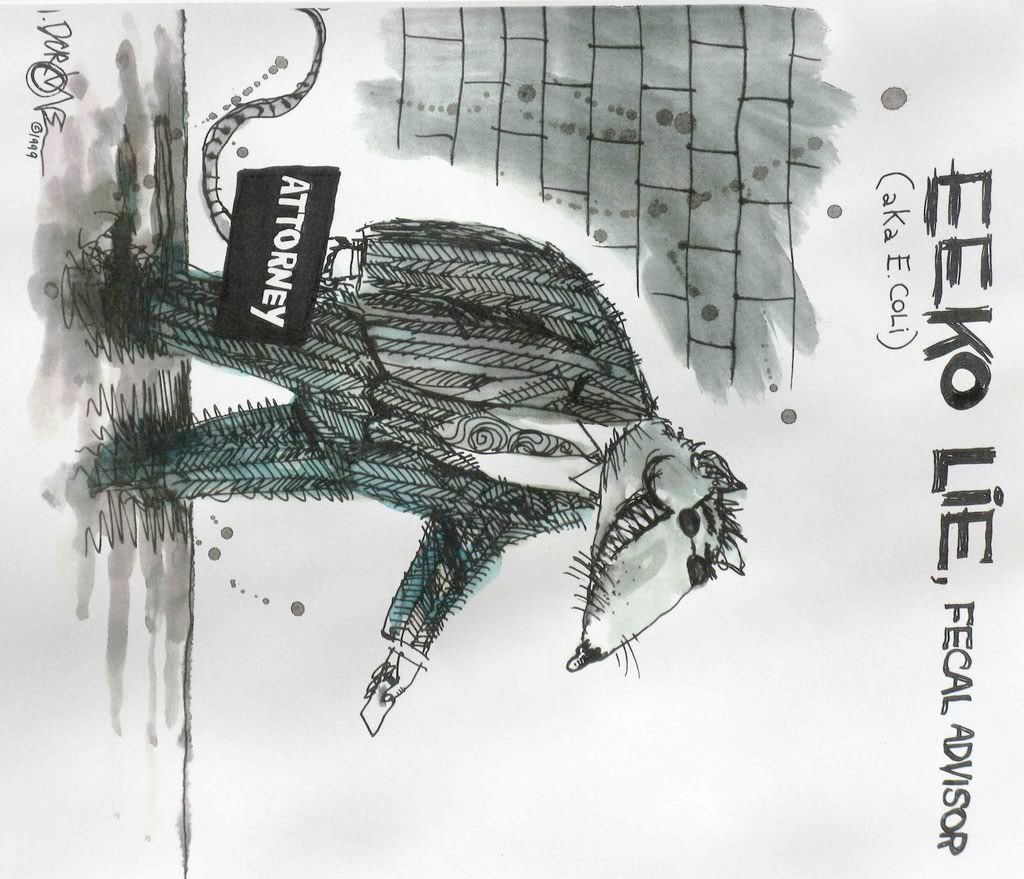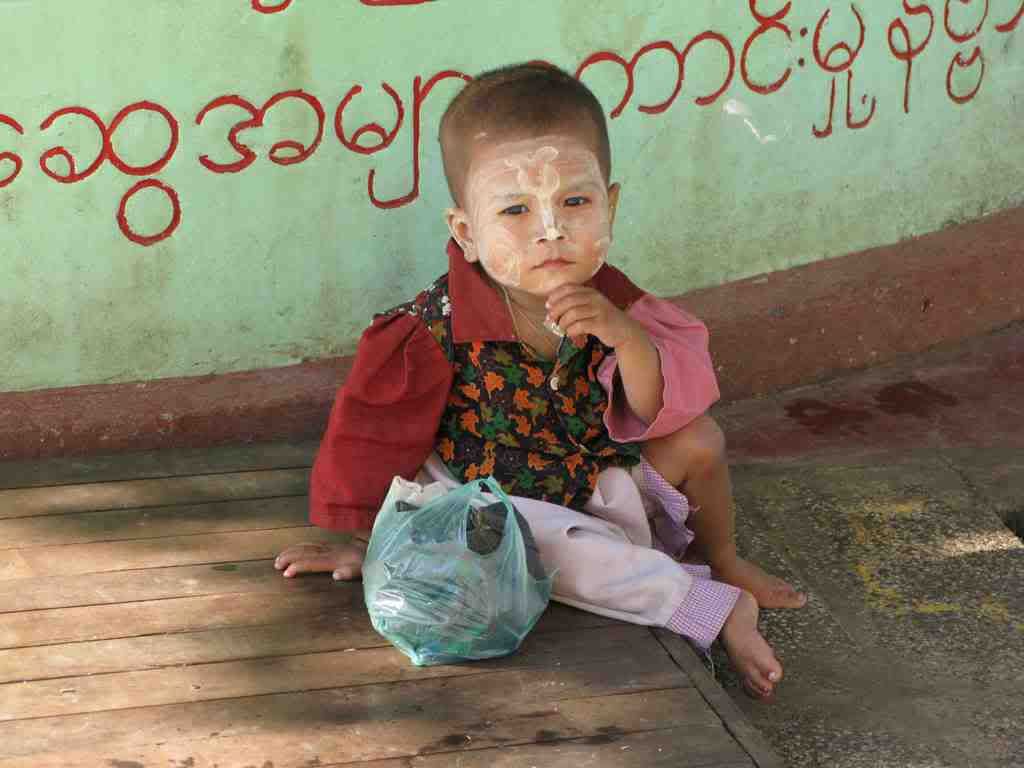Indonesia
The
Indonesian government has banned the sale of milk imported from China, and has advised consumers to avoid foods that contain dairy ingredients from China. The country's Food and Drug Monitoring Agency is conducting systematic tests on Chinese dairy products.
Japan
Marudai Food Co. (Osaka) has announced a voluntary recall of five products that were manufactured at the factory of its Chinese subsidiary, and which contain milk as an ingredient. The products are identified as: Matcha Azuki Mirukuman, Cream Panda, Gratin Crepe Corn, Kakuni Pao, and Mocchiri Nikuman.
The Japanese health ministry has instructed food importers to determine which of the products that they import contain milk from Sanlu, Yili, Mengniu or Bright Dairy & Food Co. – the four largest Chinese dairy producers implicated in the melamine adulteration scheme.
The
Osaka city government has found melamine in a chocolate product – "Chocolate Pillows" – imported from China by NS International Co., of Osaka. The city government has directed the importer to recall all "Chocolate Pillows" packages with an expiry date of April 14, 2009.
Mitsui & Co has recalled egg powder imported from the PRC after finding that the powder contained low levels of melamine. Mitsui supplied some of the egg powder to Q.P. Egg Corp., a mayonnaise producer. Mitsui tested the imported egg powder after being informed by its supplier, Dalian Hanovo Foods, that melamine had been found in its egg powder and in poultry feed. Separately, the Japanese Health Ministry announced that melamine had been found in frozen fried chicken from China. The contaminated chicken was caught before it reached the retail market.
Malaysia
The Malaysian government has instructed retailers and wholesalers to remove from sale all foods made using milk from China. The ban includes White Rabbit Creamy Candies, as well as biscuits and chocolates that contain milk powder imported from China. The government has initiated a random sampling of the withdrawn products from melamine testing, and has indicated that the order will remain in force until the melamine contamination issue is resolved in China. Malaysia has confiscated 866 food products suspected of containing melamine.
Malaysia announced that they were on the alert for melamine-contaminated vegetable products from China, after South Korea apparently detected melamine in some vegetables. No additional details were offered.
The Malaysian government is warning consumers
not to buy unlabeled biscuits, as these may be contaminated with melamine. The government detected melamine in two brands of biscuits – Khong Guan and Khian Guan – and ordered their withdrawal from the market. But some shopkeepers decided, instead, to break open the packages and sell the biscuits unlabeled. According to the government, the source of the melamine was ammonium bicarbonate (a chemical leavening agent used in baking) imported from China.
Malaysia is investigating
Munchy Food Industries as a result of the Hong Kong Centre for Food Safety having detected melamine in two flavors of Munchy's Mini Crackers. The CEO of Munchy claims that the company does not use any dairy ingredients from China in its products.
Myanmar (Burma)
The government of Myanmar has detected melamine in
9 of 16 brands of milk powder imported from China. The melamine-contaminated brands include Star Milk Powder (20g), Star (450g), Crown, Happy Baby Toys, Dulac (Dumex) Step 1 Infant Formula, Mandalay (raw milk powder), Two Cows Shi Lin (whole sweet milk powder), Rainbow and Enfagrow. Supermarkets and wholesale markets in the former national capital, Yangon, have removed the adulterated milk from sale, and
Myanmar has banned future importation of these brands.
New Zealand
The New Zealand Food Safety Authority has been conducting
random tests of Chinese-made dairy products for the presence of melamine.
NZFSA is advising consumers to avoid consuming White Rabbit Creamy Candies, after finding 180 ppm of melamine in a sample of the product. The candies are sold through Asian retail stores, supermarkets and dairies. Anyone who has purchased the candies should either dispose of them or return them to the retailer for a refund. Parents of children who have eaten these candies may want to consult their medical practitioner.
The
Warehouse has withdrawn four Chinese-made products from store shelves. The confectionery and biscuit products have been removed as a precautionary measure, pending receipt of test results.
The New Zealand Food Safety Authority has posted an expanded explanation of its
current risk management approach to the melamine contamination issue. The
agency also reports having completed testing on 116 samples of dairy products, covering all major manufacturers. All but four of the samples were negative for melamine. Four samples of lactoferrin were contaminated with "trace" amounts of the chemical.
Melamine at a concentration of 3.3 ppm has been detected in "
Wahaha AD Milk Drink", an imported food from China. The importer has been contacted and has voluntarily withdrawn the product from sale.
The New Zealand Food Safety Authority announced that
four Chinese-made food products have been withdrawn due to excessive levels of melamine: Lotte Koala strawberry and chocolate biscuits, Q-show biscuits, and 220 mL bottles of Wahaha AD milk drink.
Philippines
The government of the Philippines has
banned the importation and sale of baby formula and other milk products from China, and the Bureau of Food and Drugs has called upon citizens to report to the government any Chinese milk products that they encounter in the marketplace. The government has detected melamine in
two milk brands from China so far – Mengniu and Yili. Both of these brands have been implicated in the Chinese melamine milk adulteration scandal.
Republic of Ireland
The
Food Safety Authority of Ireland has announced a recall of White Rabbit Creamy Candy from China, after learning of the New Zealand test results. The candy is available for sale in some Asian and Chinese specialty stores.
Russia
The country's Chief Sanitary Officer has announced a
ban on imports of all Chinese food products that contain milk or milk derivatives. Foods containing powdered milk from China have been found in the
Khabarovsk region of far eastern Russia and have been withdrawn from sale. These items had been imported from China before the ban went into effect.
Russia continues to identify milk-containing products from China and remove them from sale. On October 7th, the government found and withdrew two (metric) tonnes of
Golden Milk, a vegetable-based dairy substitute containing 10% milk powder. Consumers are advised to avoid using this made-in-China milk substitute pending lab test results. Itar-Tass reported October 11th that Russian authorities had found and ordered withdrawn 63Kg of milk powder from China in three rural communities in the
Altai Republic.
Singapore
Singapore has suspended the sale and import of all milk-containing products from China, after finding melamine in a Yili yogurt bar, Dutch Lady Strawberry Milk, and White Rabbit Creamy Candy. The ban covers milk, ice cream, yogurt, chocolate, biscuits, candy, and any other products that contain milk from China as an ingredient.
Since its initial release of test results, Singapore reports having found excessive amounts of melamine in
six additional biscuits: Baby Looney Tunes Cream Filled Biscuits Assorted Family Pack, C & OK Vigour 888 Egg & Milk, Khong Guan Mini Burger Biscuit Bulk Pack, Liluo Fruit P.D. Almond Flavour, Potter Potato Chips Pizza and Tom & Jerry Cheese Balls. This brings to 22 the total number of melamine-contaminated products from China that have been detected by Singapore authorities.
Singapore has lifted a ban on
"Julie's" brand biscuits – manufactured in Malaysia – after inspecting the factories. The action is contingent on each consignment being accompanied by a health certificate and lab report.
Singapore
has lifted its suspension of milk and milk-based products imported from China. Products manufactured on or after December 18, as long as the manufacturers have complied with agreed-to conditions.
NEW Dec 22
South Africa
The South Africa Department of Health has issued an order to detain all Chinese food products that contain milk or any other dairy component, including whey, lactose or casein.
South Korea (Republic of Korea)
The
Korean Food and Drug Administration is expanding its melamine surveillance to include all dairy products and ingredients imported from China. The program, which at first was limited to imported products that contained a dairy ingredient, has been widened to include item such as whey, casein, powdered milk and condensed milk.
Separately,
South Korea has reported finding traces of melamine in fish feed made from squid caught domestically and in China.
South Korea has detected melamine in a total of 10 products so far.
Most recently, the Korean Food and Drug Administration detected very low levels of the chemical in two Mars products – Snickers Peanut Funsize and M&Ms chocolate milk – Nestlé's KitKat wafers, and a biscuit made by Lotte Confectionery Co. Nestlé did not respond immediately to the finding; Mars Korea and Lotte both indicated that they would withdraw the contaminated products from sale.
Sweden
Chocolate pies manufactured by
Master Kong Dingyi International Food Corporation (Tianjin, China) – later found to contain melamine – were imported into Sweden by a Stockholm wholesaler. The pies arrived in Sweden at the end of June 2008 and are believed to have already been consumed. No official recall notice has been issued.
Taiwan
All tainted milk products from the People's Republic of China
have been banned from sale in Taiwan. In addition, Taiwan has detected melamine in several products that contain non-dairy vegetable proteins. The tainted non-dairy items were Mr Brown products imported by King Car Company. Taiwan is the only country, so far to report finding melamine in non-dairy protein-containing products from mainland China.
The
Taiwan Department of Health has instructed all distributors and retailers to remove from sale "... all food and beverages using Chinese-made milk powder, cream and vegetable protein." All of the withdrawn foods will be subjected to testing for melamine contamination. Foods that meet government standards will be allowed back onto store shelves.
The government of Taiwan has tested
Nestlé milk powders from China and has found low levels of melamine (0.3 to 0.85 ppm) in some of the samples. While the Taiwan health ministry acknowledges that these very low levels do not pose any significant health threat, the government has requested – and Nestlé has agreed to – a recall.
Taiwan also has ordered the withdrawal of
frozen octopus balls imported from China, pending testing for melamine contamination.
Taiwan is attempting to trace 200 tonnes of ammonium bicarbonate – a chemical leavening agent used in baking and some other food applications – that was reported to be contaminated with melamine. The bicarbonate was imported from China by Sesoda Corp., and sold to food processors and bakeries. Hunya Foods Co. has recalled all of its products that were manufactured with the ammonium bicarbonate imported by Sesoda.
Peacock brand biscuits, manufactured by Kuai Kuai Co., Ltd., were discovered to contain low levels of melamine and withdrawn from sale. The biscuits, which contained some melamine-contaminate leavening agent, were sold in convenience stores, and in Carrefour, Geant and RT-marts retail outlets.
Several samples of
protein powder from two mainland China suppliers were found to contain melamine and have been withdrawn by the importing companies. As a result of this latest melamine finding, Taiwan has banned the importation of all protein powder from mainland China.
Tanzania
Tanzania has
banned the importation of Chinese milk products.
Thailand
Bangkok Post has reported that the Thai Food and Drug Administration has asked retailers to suspend the sale of several biscuits and candies, which might contain dairy products from China, in order to give the agency some time to conduct tests for melamine. The list of products includes Oreo wafer sticks, Dove milk chocolate bars, M&M chocolate candies, Snickers caramel peanut bars and nougat, Mentos yoghurt candies, and Mao Huad coffee and oatmeal crackers.
The bakery company
S&P Syndicate PCL has withdrawn Milk Cookies S&P from its 280 outlets nationwide as a precaution after it was advised that the Swiss government had found melamine in a sample of the cookies. The bakery advised Thai media that the cookies contained milk powder from Australia – not from China – and that the company would be submitting samples to the Thai government for melamine tests.
The Thai FDA reports having found "very high levels" of melamine (92.82 ppm) in a domestic brand of condensed milk. Mali brand unsweetened condensed milk, a product of Thai Dairy Industry Co. Ltd., is manufactured with ingredients imported from several countries, including Belgium, Switzerland, Australia, Germany and India. The Reuters press report does not indicate whether any ingredients were imported directly from China. 









